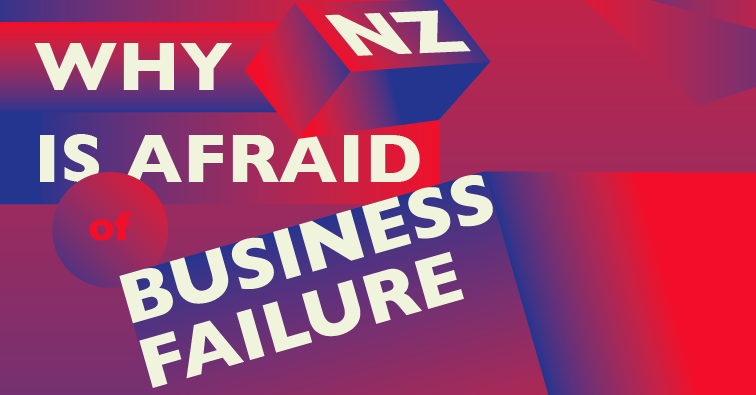Looking at the wrong planes: ‘If we bury the ideas that go down in flames, we’ll never be able to fly’

There is a perception that the US has a greater appetite for business risk than New Zealand. Donald Trump’s companies have filed for bankruptcy more times in the past 30 years than any other major US company, yet he is now the Republican nominee for President, and is considered by voters the better of the two contenders to run the world’s largest economy.
But is it true, and, if so, why?
Gary Bolles, US serial entrepreneur and business commentator, undertook a series of interviews on behalf of Callaghan Innovation to understand the Silicon Valley attitude to failure. One investor told him:
“We are risk seekers … In an average day, if we see eight people and seven of them are telling us that there isn’t a lot of risk in their model, it’s the eighth one, who is crazy, that we’re listening to because we want the crazy to come true.”
Gary was repeatedly told that investors aren’t interested in entrepreneurs who haven’t failed before. It isn’t that failure is a badge of honour, but failure gives an entrepreneur credibility, particularly if the fail results in lessons learnt.
On the other hand, research conducted by University of Auckland masters student Manju Maxi concluded that fear of failure was stronger in Australasia, with the cost of failing there much higher than in the US. An Australian industry expert told her failure in the US “doesn’t put a big black cross on your name where you can’t have another go” with investors, whereas, in Australasia, “if you get it wrong, you’re out of the game for a long time”.
A Kiwi industry expert suggested New Zealand needs to “become a nation where we have become much more comfortable with having a couple of failures,” whereas in reality publicity around a business failure can severely inhibit investment.
But these are all anecdotal examples. What does the research show?
For its Understanding Failure report, global banking giant Barclays surveyed over 2000 high net worth individuals around the world about their attitudes to entrepreneurship and failure. The results showed that over two-thirds of Americans agreed that failure is essential for economic growth. But American attitudes look meek compared to the Middle East, with over 90% viewing failure in a positive light.
Interestingly, this is partly attributed to the difficulty of doing business in some countries and regions creating a culture of resilience and persistence.
By contrast, New Zealanders are amongst the happiest people on Earth, ranking 8th in the world (the US is 13th) in a recent World Happiness Report, and according to the World Bank, we have a world leading entrepreneurial framework with low bureaucratic barriers. However, we also work longer hours than most other countries.
And this appears to inhibit our embracing failure. While we publish science at twice the OECD average, our rate of investment in R&D is half the OECD average, and our rate of patent applications is just a quarter of the average.
Research conducted by Idealog for Callaghan Innovation concludes that while over 80 percent of respondents thought that failure was a good learning for entrepreneurs, when it comes to their own failure, people take it personally – over half said they would feel like a failure; that people would think they hadn’t tried hard enough and they were not good enough.
Over 70 percent of respondents said there was stigma associated with having a failed business in New Zealand, although a majority of respondents feared failure for the financial loss rather than the stigma.
“So what?” you might say. If New Zealanders are happy and hardworking, does it matter if we don’t tolerate failure?
The answer is the rewards that big ideas bring. Not just the chance to change the world and make a sack of money, but the possibility of lifting productivity and increasing worker flexibility.
Instead of working some of the longest hours in the OECD, New Zealanders could spend more of their working life doing the things they want to do, but currently reserve for retirement – including mucking around generating more big ideas.
In his article, ‘Business Advice Plagued by Survivor Bias’, commentator Jason Cohen explains the importance of a culture willing to share failures and learn from them, as opposed to learning from success. He uses a great story from WWII to explain why failure and the lessons from it as so important:
“During World War II the English sent daily bombing raids into Germany. Many planes never returned; those that did were often riddled with bullet holes from anti-air machine guns and German fighters.
Wanting to improve the odds of getting a crew home alive, English engineers studied the locations of the bullet holes. Where the planes were hit most, they reasoned, is where they should attach heavy armor plating. Sure enough, a pattern emerged: Bullets clustered on the wings, tail, and rear gunner’s station. Few bullets were found in the main cockpit or fuel tanks.
The logical conclusion is that they should add armor plating to the spots that get hit most often by bullets. But that’s wrong.
Planes with bullets in the cockpit or fuel tanks didn’t make it home; the bullet holes in returning planes were “found” in places that were by definition relatively benign. The real data is in the planes that were shot down, not the ones that survived.”
To enable us to learn from the failures and avoid survivor bias, we need a culture that is accepting of failure that does not stigmatise its entrepreneurs for sharing their mistakes.
In other words, if we bury the ideas that go down in flames, we’ll never be able to fly. 
-
Sara McFall is business innovation manager at Callaghan Innovation and a former anthropologist.




